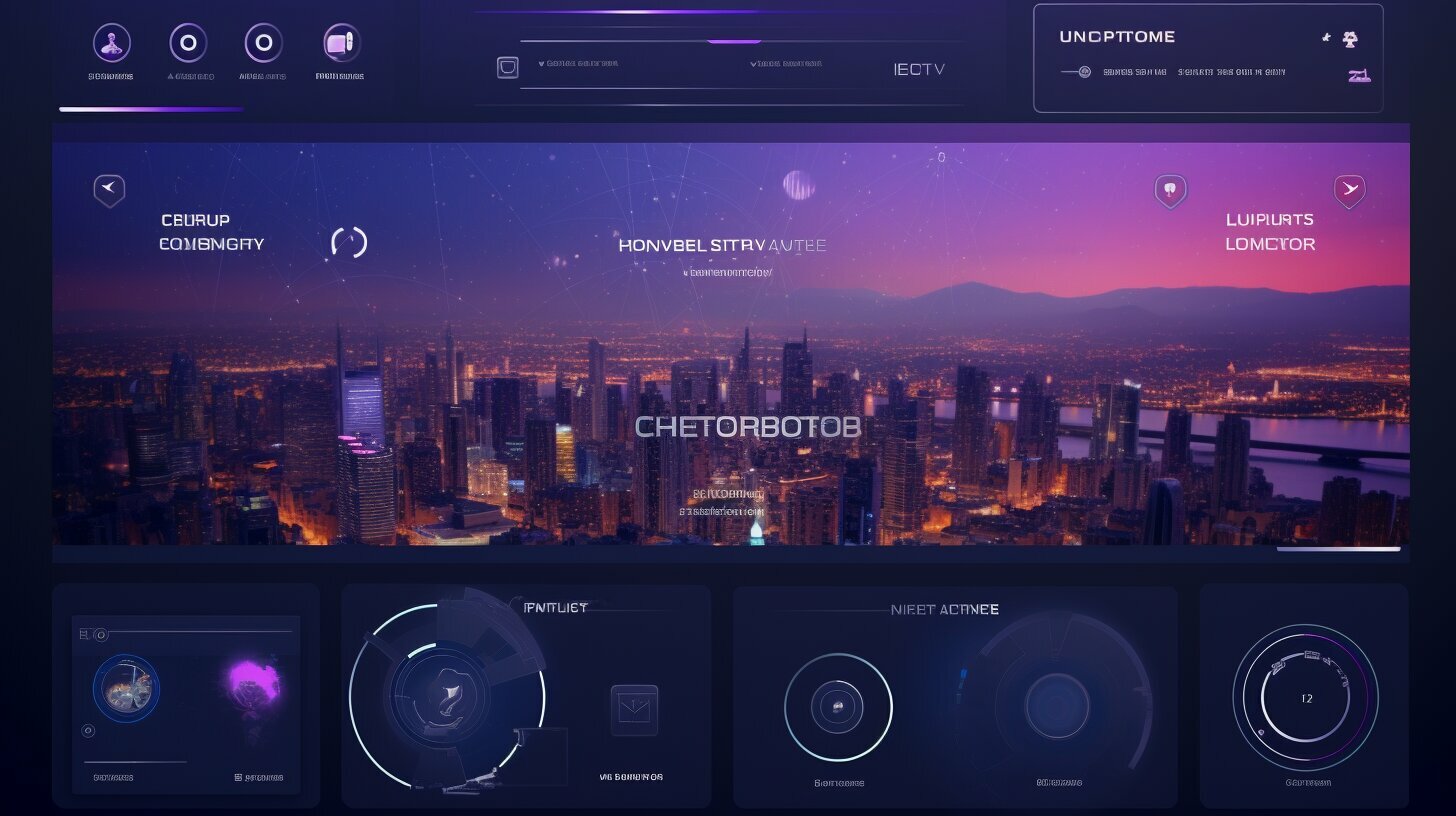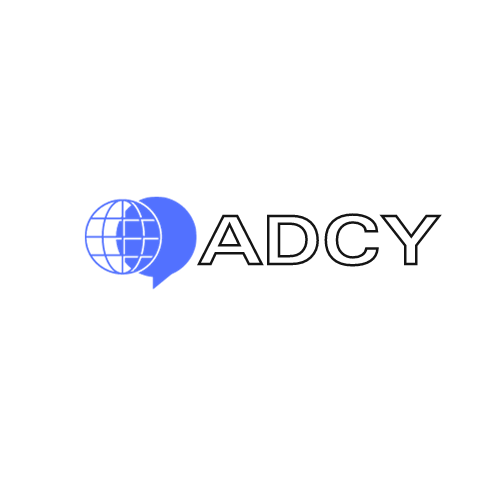Designing a successful PPC campaign for digital services is crucial for marketers who want to maximize their online advertising efforts and achieve real results in the US market. A PPC campaign, or pay-per-click campaign, involves creating targeted ads that are displayed when users search for specific keywords and only paying for clicks that direct them to your website or landing page. It is an effective way to drive targeted traffic, generate leads, and increase conversions.
To build a successful PPC campaign, several key factors need to be considered. First, determining the campaign structure is essential. This involves defining the organization of your ads, ad groups, and keywords, as well as setting clear goals and objectives for your campaign. It is important to align your PPC strategy with your overall business goals to ensure coherence and effectiveness.
Next, conducting thorough keyword research is crucial. Identifying the right keywords to target is essential for reaching your desired audience and maximizing your campaign’s effectiveness. By understanding the search terms and phrases that your target audience uses, you can create ads that are more relevant and engaging, leading to higher click-through rates and conversions.
Crafting engaging ads is another key element of a successful PPC campaign. Writing compelling ad copy that grabs the attention of your target audience and includes persuasive elements is vital for driving clicks and achieving your campaign objectives. Ad design and visual elements also play a role in capturing user attention, so it’s important to optimize your ad creatives accordingly.
Utilizing PPC campaign management tools and software can significantly streamline your campaign management process. These tools provide valuable insights, automate tasks, and offer comprehensive tracking and reporting functionalities. By leveraging technology, you can optimize and monitor your campaigns more effectively, making data-driven decisions to drive continuous improvement.
Understanding the structure of a PPC campaign is essential for organizing and optimizing your ads effectively. From ad groups to ad extensions and targeting options, each element has a specific purpose and can impact the performance of your campaign. By familiarizing yourself with these components, you can create a well-organized campaign that maximizes your reach and delivers the desired results.
Identifying relevant landing pages is crucial for optimizing user experience and driving conversions. Your landing pages should be aligned with your ad messaging and provide a seamless transition for users from the ad to the desired action. By optimizing your landing pages and ensuring they are relevant and engaging, you can increase the chances of conversion and achieve better campaign performance.
Continuous monitoring and optimization are crucial for the success of your PPC campaign. By tracking key performance metrics, identifying areas for improvement, and making data-driven adjustments, you can continuously optimize your campaign for better results. Regular monitoring allows you to identify trends, spot opportunities, and address any issues that may arise.
Understanding the Basics of PPC Campaigns
Before diving into the details of designing a PPC campaign, it is important to have a clear understanding of what it entails and how it can benefit your digital marketing efforts. PPC, or pay-per-click, is a form of online advertising where marketers create ads that target specific keywords and pay for each click they receive. This advertising model allows businesses to reach their target audience directly and drive traffic to their website or landing page. By mastering the basics of PPC campaigns, marketers can generate leads, increase brand visibility, and maximize their return on investment.
When designing a PPC campaign, the first step is to determine the campaign structure. This involves deciding how your ads will be organized, setting a budget, and defining your target audience. By structuring your campaign effectively, you can ensure that your ads are shown to the right people at the right time, increasing the chances of conversion. Additionally, it is crucial to conduct thorough keyword research to identify the most relevant and high-performing keywords for your campaign. This will help you optimize your ads for maximum visibility and relevance.
Creating engaging ads is another crucial aspect of designing a successful PPC campaign. Your ads should be compelling, concise, and tailored to your target audience. By conducting research and gaining insights into your audience’s preferences and needs, you can craft ads that resonate with them and encourage clicks. In addition, utilizing PPC campaign management tools and software can streamline the process of managing your campaign, allowing you to track performance, make data-driven decisions, and optimize your ads for better results.
| Benefits of Understanding the Basics of PPC Campaigns |
|---|
| Generate leads and increase brand visibility |
| Maximize return on investment |
| Reach target audience directly |
| Increase website traffic and conversions |
Key Takeaways:
- PPC campaigns involve creating ads that target specific keywords and paying for clicks.
- Determining the campaign structure, conducting keyword research, and creating engaging ads are crucial for success.
- Utilizing PPC campaign management tools and software can streamline campaign management.
- Continuous monitoring and optimization, setting clear performance goals, and analyzing competitor campaigns are essential for maximizing results.
- Hiring an experienced PPC agency can provide expertise and ensure campaign success.
Defining Your Campaign Structure
Designing a successful PPC campaign starts with defining a clear structure and establishing specific goals that align with your business objectives. A well-defined campaign structure serves as the foundation for effective pay-per-click (PPC) strategies, allowing you to optimize your digital advertising efforts and maximize your return on investment. When defining your campaign structure, consider the following key factors:
Organizing Ad Groups
One essential aspect of campaign structure is organizing your ads into relevant ad groups. Ad groups help you categorize your ads based on specific themes or target audiences, enabling you to create tailored messaging and ensure ad relevance. By grouping ads that share common characteristics, you can streamline your campaign management and make it easier to monitor and optimize performance.
Setting Budgets and Bids
Another crucial element of campaign structure is setting budgets and bids for your ads. Determine how much you are willing to spend on your PPC campaign and allocate your budget across different ad groups and keywords. By setting intelligent bid strategies and optimizing your bids based on performance data, you can enhance cost-efficiency and improve the visibility of your ads.
| Ad Group | Budget | Bid Strategy |
|---|---|---|
| Ad Group 1 | $500 | Manual CPC |
| Ad Group 2 | $300 | Target CPA |
| Ad Group 3 | $200 | Enhanced CPC |
Defining Geographic Targeting
Geographic targeting plays a vital role in campaign structure, allowing you to focus your ads on specific locations that generate the most value for your business. Whether you want to target a local audience or expand your reach to international markets, defining your geographic targeting enables you to deliver relevant ads to the right users at the right time.
By taking the time to define your campaign structure, you can ensure that your PPC efforts are well-organized and optimized for success. Remember to regularly review and refine your campaign structure as your business evolves and market trends change. Stay focused on your goals, maintain a clear structure, and adapt your strategies based on data-driven insights to achieve the desired results.
Conducting Keyword Research
Keyword research is a critical step in designing an effective PPC campaign as it helps you identify the most relevant keywords to target and optimize your ads for. By understanding what keywords your target audience is using to search for products or services related to your digital business, you can create ads that are more likely to be seen by potential customers.
When conducting keyword research, it’s important to consider both the relevance and search volume of keywords. Relevance ensures that your ads are shown to the right audience, while search volume indicates the potential reach of your ads. By finding a balance between relevance and search volume, you can maximize the effectiveness of your PPC campaign.
There are various tools available to assist you in conducting keyword research. Google Keyword Planner, for example, provides valuable insights into the search volume and competitiveness of keywords. It also suggests alternative keywords that you may not have considered. Other tools, such as SEMrush and Moz, can provide additional data and analysis to enhance your keyword research process.
| Keyword | Search Volume | Competition |
|---|---|---|
| digital marketing agency | 2,000 | High |
| online advertising services | 1,500 | Medium |
| PPC campaign management | 800 | Low |
Once you have identified a list of relevant keywords, it’s important to organize them into strategic groups. This allows you to create targeted ad groups and ad campaigns, improving the overall performance of your PPC campaign. By grouping similar keywords together, you can create tailored ads and landing pages that resonate with specific user intent, leading to higher click-through rates and conversions.
In conclusion, conducting thorough keyword research is essential for designing a successful PPC campaign. By identifying the most relevant keywords and structuring them strategically, you can optimize your ads, reach the right audience, and ultimately drive valuable traffic and conversions for your digital services.
Crafting Engaging Ads
Creating compelling and engaging ads is essential to capturing the attention of your target audience and driving them to take action. In a highly competitive digital advertising landscape, it is crucial to stand out with ads that resonate with your audience and compel them to click through to your website or landing page.
When crafting your ads, it is important to start with a deep understanding of your target audience’s needs, desires, and pain points. This knowledge will allow you to tailor your messaging and visuals to appeal directly to their interests and motivations. Research your audience demographic, conduct surveys, and analyze customer feedback to gain valuable insights into what drives their decision-making process.
One effective technique for creating engaging ads is to use storytelling. By telling a compelling story or sharing a relatable experience, you can connect with your audience on an emotional level and establish a sense of trust and authenticity. Use vivid language, descriptive imagery, and a clear call to action to guide your audience through their customer journey.
Additionally, consider incorporating interactive elements into your ads, such as quizzes, polls, or interactive videos, to provide a more immersive and engaging experience. This not only captures attention but also encourages active participation, making your brand more memorable and increasing the likelihood of conversion.
| Tips for Crafting Engaging Ads: |
|---|
| 1. Know your target audience and tailor your messaging accordingly. |
| 2. Use storytelling techniques to connect with your audience on an emotional level. |
| 3. Incorporate interactive elements to make your ads more engaging. |
| 4. Test different ad formats, visuals, and calls to action to optimize performance. |
By following these strategies and continuously testing and optimizing your ads, you can create engaging and compelling campaigns that drive results and maximize your digital advertising strategy’s effectiveness.
Utilizing PPC Campaign Management Tools
Managing a PPC campaign can be made easier and more efficient by utilizing various PPC campaign management tools and software available in the market. These tools provide marketers with the necessary capabilities to streamline their campaign management process, optimize their campaigns, and track performance effectively.
One essential tool for managing PPC campaigns is a keyword research tool, such as Google Keyword Planner or SEMrush. These tools allow marketers to discover relevant keywords, assess their search volume and competition level, and identify opportunities for optimization. By conducting thorough keyword research, marketers can select the most effective keywords for their campaigns and maximize the reach of their ads.
In addition to keyword research tools, there are also advanced analytics platforms, such as Google Analytics or Adobe Analytics, which provide robust data and insights on campaign performance. These tools allow marketers to track key metrics, such as click-through rates, conversion rates, and return on ad spend (ROAS), and identify areas of improvement. By analyzing this data, marketers can make data-driven decisions and optimize their campaigns for better results.
Furthermore, automation tools like Google Ads Editor or Microsoft Advertising Editor can help marketers save time and effort by allowing them to make bulk changes to their campaigns. These tools make it easy to update ad copy, adjust bids, and manage ad extensions across multiple campaigns or ad groups at once. By leveraging automation, marketers can streamline their campaign management process and focus on strategic planning and optimization.
| PPC Campaign Management Tool | Main Benefits |
|---|---|
| Keyword Research Tools | – Discover relevant keywords – Assess search volume and competition – Identify optimization opportunities |
| Advanced Analytics Platforms | – Track key metrics – Analyze campaign performance – Make data-driven decisions |
| Automation Tools | – Save time and effort – Make bulk changes to campaigns – Streamline campaign management |
By utilizing these PPC campaign management tools, marketers can effectively plan, optimize, and monitor their campaigns, ultimately driving better results and maximizing the success of their digital marketing efforts.
Understanding PPC Campaign Structure
To design a successful PPC campaign, it is crucial to have a clear understanding of its structure and how different components work together to achieve desired results. A well-structured PPC campaign is not only easier to manage but also more effective in driving targeted traffic and generating conversions. Let’s explore the key elements of a PPC campaign structure:
1. Campaigns and Ad Groups
A PPC campaign is organized into campaigns and ad groups. Campaigns are the highest level of organization and typically represent different advertising goals or target audiences. Within each campaign, there are ad groups that contain a set of related keywords and ads. It is important to structure your campaigns and ad groups in a logical and organized manner to ensure optimal performance and enable easy management.
2. Keywords and Match Types
Keywords are the foundation of a PPC campaign. They are the words or phrases that trigger your ads to appear when users search for related products or services. It is essential to conduct thorough keyword research to identify relevant keywords with high search volume and commercial intent. Furthermore, match types determine how closely the search terms need to match your keywords in order to trigger your ads.
3. Ad Copy and Extensions
The ad copy is the text that appears in your ads and plays a crucial role in attracting the attention of your target audience. It is important to create compelling and relevant ad copy that highlights the unique selling points of your digital services. Additionally, ad extensions such as sitelink extensions, call extensions, and location extensions can provide extra information or features to encourage users to click on your ads.
4. Landing Pages
Landing pages are the webpages where users are directed to after clicking on your ads. They should be highly relevant to the ad copy and offer a seamless user experience. It is important to optimize your landing pages by aligning the messaging, design, and call-to-action with the goals of your PPC campaign. A well-designed landing page can significantly improve your conversion rate and overall campaign performance.
By understanding and carefully structuring these key components, marketers can design PPC campaigns that are highly targeted, relevant, and effective in driving leads and maximizing ROI. Regularly monitoring performance, analyzing data, and making data-driven optimizations will help ensure continuous improvement and success in PPC campaigns.
Identifying Relevant Landing Pages
Landing pages play a vital role in the success of a PPC campaign, as they serve as the destination for users after clicking on your ads. The effectiveness of your landing pages can greatly impact the conversion rate and overall performance of your digital marketing campaign. To ensure that your landing pages are highly relevant and engaging, it is essential to follow a strategic approach in their identification and optimization.
One key step in identifying relevant landing pages is to align them closely with the specific keywords and ad copy used in your PPC campaign. By creating landing pages that directly address the user’s search intent and provide relevant information, you increase the chances of capturing their interest and motivating them to take the desired action.
Another important aspect to consider is the user experience on your landing pages. Ensuring that they are visually appealing, easy to navigate, and mobile-friendly contributes to a positive user experience, encouraging visitors to stay longer and engage with your content. By optimizing the layout, design, and loading speed of your landing pages, you can create a seamless experience that enhances the chances of conversion.
| Key Considerations for Identifying Relevant Landing Pages: |
|---|
| Create landing pages that align with the keywords and ad copy of your PPC campaign |
| Optimize landing pages for a positive user experience |
| Ensure landing pages are visually appealing, easy to navigate, and mobile-friendly |
Remember to regularly test and analyze the performance of your landing pages. By monitoring metrics such as bounce rate, conversion rate, and time on page, you can identify areas for improvement and make data-driven adjustments to optimize the effectiveness of your landing pages.
Continuous Monitoring and Optimization
Monitoring and optimizing your PPC campaign on an ongoing basis is crucial to ensure its effectiveness and maximize your return on investment. By continuously tracking the performance of your campaign, you can identify areas for improvement and make data-driven adjustments to enhance its overall success. Here are key strategies for monitoring and optimizing your online advertising campaign:
- Track relevant metrics: Regularly monitor key performance indicators (KPIs) such as click-through rates (CTR), conversion rates, cost per click (CPC), and return on ad spend (ROAS). These metrics provide valuable insights into the performance of your campaign and help you identify areas that need attention.
- Identify underperforming keywords: Review your keyword data to identify any keywords that are not driving the desired results. Consider pausing or adjusting bids for underperforming keywords to allocate your budget more effectively.
- Refine ad targeting: Continuously analyze the performance of your ads across different demographics, locations, and devices. This information can help you optimize your targeting settings to reach your ideal audience and increase ad relevance.
- Optimize landing pages: Regularly review and optimize your landing pages to ensure they align with your ad messaging and provide a seamless user experience. Test different elements such as headlines, call-to-action buttons, and forms to improve conversion rates.
Additionally, consider using A/B testing to experiment with different ad variations and landing page designs. This allows you to compare performance and make data-driven decisions to optimize your campaign further.
Table: Key Metrics to Monitor
| Metric | Description |
|---|---|
| Click-Through Rate (CTR) | The percentage of ad impressions that result in clicks. A high CTR indicates ad relevance and user engagement. |
| Conversion Rate | The percentage of ad clicks that result in a desired action, such as a purchase or form submission. Optimizing your conversion rate leads to higher ROI. |
| Cost per Click (CPC) | The average amount you pay for each click on your ad. Monitoring CPC helps you control your budget and optimize your bid strategy. |
| Return on Ad Spend (ROAS) | A measure of the revenue generated for every dollar spent on ads. Monitoring ROAS helps you evaluate the profitability of your campaign. |
Remember, continuous monitoring and optimization are essential for the success of your online advertising campaign. By analyzing data, refining targeting, and optimizing landing pages, you can maximize the effectiveness of your PPC campaign and achieve better results.
Setting Clear Performance Goals
Clearly defined performance goals are essential to measure the success of your PPC campaign and evaluate its impact on your digital marketing strategy. By setting specific and measurable goals, you can effectively track the performance of your campaign and make data-driven decisions to optimize its effectiveness.
One important aspect of setting performance goals is identifying key performance indicators (KPIs) that align with your overall marketing objectives. These KPIs can include metrics such as click-through rate (CTR), conversion rate, cost per conversion, and return on ad spend (ROAS). Each KPI provides valuable insights into different aspects of your campaign’s performance, allowing you to assess its effectiveness and make adjustments as needed.
To set clear performance goals, it is crucial to understand your target audience and their behaviors. Conducting thorough audience research can help you identify the specific actions you want your audience to take, such as filling out a lead form or making a purchase. By aligning your goals with your audience’s behaviors, you can tailor your PPC campaign to maximize conversions and achieve your desired outcomes.
Examples of Performance Goals:
Here are some examples of performance goals you can set for your PPC campaign:
- Achieve a minimum click-through rate (CTR) of 5% to drive more traffic to your website.
- Improve your conversion rate by 10% within the next three months to increase the number of leads generated.
- Reduce the cost per conversion by 20% to optimize your budget and improve ROI.
- Achieve a return on ad spend (ROAS) of at least 300% to ensure profitability.
By setting clear performance goals and regularly monitoring your campaign’s performance against these goals, you can make data-driven adjustments and optimizations to improve your PPC campaign’s effectiveness and maximize its impact on your digital marketing strategy.
| Benefits of Setting Clear Performance Goals: |
|---|
| Provides a benchmark for measuring success |
| Focuses campaign efforts on achieving specific outcomes |
| Allows for data-driven decision making |
| Enables optimization to improve campaign performance |
Defining Your Target Audience
Understanding your target audience is crucial for designing a PPC campaign that resonates with the right people and drives meaningful results. By delving into the demographics, interests, and behaviors of your audience, you can effectively tailor your digital advertising strategy to capture their attention and influence their buying decisions.
One way to define your target audience is through thorough audience research. This involves analyzing data from your website analytics, social media insights, and customer surveys to gather valuable insights about your ideal customers. Identify key characteristics such as age, gender, location, and income level to create targeted ads that speak directly to their needs and preferences.
Segmenting your audience is another effective technique for optimizing your PPC campaign. By dividing your target audience into specific groups based on common attributes or behaviors, you can deliver more personalized and relevant ads. This can be done through segmentation criteria such as interests, purchase history, or engagement with your brand. By crafting tailored messages tailored to each segment, you can increase the chances of engaging your audience and driving conversions.
| Benefits of Defining Your Target Audience | How to Define Your Target Audience |
|---|---|
|
|
Remember, identifying and understanding your target audience is an ongoing process. As consumer behaviors and preferences evolve, you must adapt your digital advertising strategy accordingly. Regularly monitor and analyze the performance of your PPC campaign, collect data, and adjust your targeting and messaging to continuously optimize your results.
Analyzing Competitor PPC Campaigns
Analyzing competitor PPC campaigns can provide valuable insights and help you identify opportunities to differentiate your own campaign and achieve better results. By understanding what your competitors are doing in their PPC campaigns, you can gain a competitive advantage and optimize your own campaign to drive more traffic, increase conversions, and maximize ROI.
One effective way to analyze competitor PPC campaigns is by conducting thorough research and monitoring their ad placements, keywords, and messaging. By studying their ads, you can gain insights into how they are targeting their audience, what keywords they are bidding on, and how they are positioning their brand.
It is important to pay attention to the strategies and tactics your competitors are using to attract and engage their target audience. Look for patterns in their ad copy, call-to-action phrases, and landing page experiences. This information can help you refine your own messaging and ensure your ads stand out from the competition.
Another valuable aspect to analyze is the performance data of your competitor’s PPC campaigns. Look at metrics such as click-through rates, conversion rates, and cost per conversion. By understanding how well their campaigns are performing, you can benchmark your own campaign’s performance and make data-driven decisions to optimize your results.
Example of a Competitor PPC Campaign
“Our competitor, Company XYZ, is running an impressive PPC campaign targeting the same audience as us. Their ads consistently appear in the top positions for relevant keywords, indicating a strong bidding strategy. They also use persuasive ad copy and highlight unique selling points that differentiate their services. In addition, their landing pages are well-designed and optimized for conversions, enhancing the overall user experience. By analyzing their campaign, we can gain insights on how to refine our own strategy and improve our performance in the market.”
| Competitor | Ad Placement | Keywords | Messaging |
|---|---|---|---|
| Company XYZ | Top positions | Digital marketing services, PPC management, online advertising | “Boost your online presence with Company XYZ’s expert PPC management. Drive targeted traffic and increase conversions. Get a free consultation now!” |
By conducting a comprehensive analysis of competitor PPC campaigns, you can gain valuable insights to inform and optimize your own campaign strategy. Use this information to refine your messaging, enhance your bidding strategy, and improve your overall campaign performance. Remember, the goal is not to copy your competitors, but to understand their tactics and find innovative ways to differentiate and improve your own PPC campaign.
Collecting Data and Tweaking Settings
Collecting and analyzing data is a crucial part of optimizing your PPC campaign, as it provides valuable insights into its performance and helps you make informed decisions. By tracking relevant metrics and monitoring key performance indicators (KPIs), you can gain a deeper understanding of how your campaign is performing and identify areas for improvement. This data-driven approach allows you to make adjustments and tweaks to your campaign settings to enhance its effectiveness and drive better results.
One of the primary sources of data for your PPC campaign is the platform itself. Most PPC advertising platforms provide robust analytics and reporting tools that allow you to track metrics such as impressions, clicks, click-through rates (CTRs), conversions, and more. By analyzing this data, you can identify trends and patterns in user behavior, determine which keywords and ad placements are driving the most conversions, and allocate your budget accordingly. Furthermore, you can identify underperforming keywords or ads and make data-driven adjustments to optimize their performance.
Another valuable source of data for your PPC campaign is website analytics. By integrating your PPC campaign with a web analytics tool such as Google Analytics, you can gain deeper insights into user behavior beyond the initial click. Website analytics can provide valuable data on bounce rates, time on page, conversion rates, and other engagement metrics. This information can help you optimize your landing pages, user experience, and overall conversion funnels to drive better results from your PPC campaign.
| Data Source | Benefits |
|---|---|
| PPC Platform Analytics | Track campaign metrics, identify trends, and optimize performance |
| Website Analytics | Gather data on user behavior, optimize landing pages, and improve conversion funnels |
| A/B Testing | Experiment with different ad variations, landing pages, and campaign settings to determine the most effective strategies |
In addition to data collection, A/B testing is another crucial aspect of optimizing your PPC campaign. By running experiments with different ad variations, landing pages, and campaign settings, you can determine the most effective strategies for driving conversions. A/B testing allows you to test different elements of your campaign and make data-backed decisions on what works and what doesn’t, ultimately maximizing your campaign’s performance and ROI.
By continuously collecting data, tweaking campaign settings, and making data-driven decisions, you can optimize your PPC campaign over time and achieve better results. Regularly monitor your campaign’s performance, analyze the data, and adjust your strategy accordingly. Remember, PPC campaigns require ongoing optimization, so staying proactive and responsive to changes in user behavior and market trends is essential for success.
Key Takeaways:
- Collecting and analyzing data is crucial for optimizing your PPC campaign.
- Use PPC platform analytics and website analytics to track performance and gain insights.
- Utilize A/B testing to experiment with different strategies and optimize conversions.
- Continuously monitor your campaign’s performance and make data-driven adjustments.
Boosting Results and Maximizing Profitability
To maximize the effectiveness and profitability of your PPC campaign, it is important to continuously refine your strategies and tactics based on data insights and industry best practices. By leveraging the power of digital advertising, you can reach your target audience at the right time with the right message, driving higher click-through rates and conversions for your business.
Analyzing Data for Optimization
One key aspect of boosting results is analyzing the data collected from your PPC campaign. By closely monitoring performance metrics such as click-through rates, conversion rates, and cost per click, you can identify areas for improvement and make data-driven decisions. Utilize the analytical tools provided by platforms like Google Ads or Bing Ads to gain valuable insights into your campaign’s performance.
By studying the data, you can refine your keyword strategy and bidding techniques to better target your audience. Adjusting your budget allocation and bid settings for high-performing keywords can help optimize your campaign’s reach and maximize your return on investment.
Optimizing Ad Copy and Landing Pages
Another crucial aspect of boosting results is optimizing your ad copy and landing pages. Craft compelling ad copy that highlights your unique selling proposition and engages your target audience. Use persuasive language and compelling calls-to-action to entice users to click on your ads.
Ensure that your landing pages are relevant to the ad copy and provide a seamless user experience. Design them with a clear and concise layout, compelling visuals, and persuasive content that drives visitors to take the desired action, whether it’s making a purchase, filling out a form, or signing up for a newsletter.
Continual Testing and Refinement
To truly maximize the effectiveness and profitability of your PPC campaign, adopt a mindset of continual testing and refinement. Test different ad formats, headlines, and ad extensions to identify what resonates best with your target audience. A/B testing can help you determine which variations yield higher click-through and conversion rates.
Regularly review and refine your targeting options, such as demographics, device types, and geographic locations, to ensure you are reaching the right audience. By analyzing the performance of different targeting options, you can allocate your budget more efficiently and effectively.
Summary
Boosting results and maximizing profitability in your PPC campaign requires careful analysis of data, optimization of ad copy and landing pages, and a commitment to continual testing and refinement. By leveraging the power of data insights and industry best practices, you can drive higher click-through rates, conversions, and ultimately, achieve your business goals.
| Key Strategies for Boosting Results | Brief Description |
|---|---|
| Analyze data for optimization | Monitor performance metrics and refine keyword strategy and bidding techniques based on insights. |
| Optimize ad copy and landing pages | Craft compelling ad copy and design relevant landing pages to drive conversions. |
| Continual testing and refinement | Test different ad formats, targeting options, and refine strategies based on performance. |
The Benefits of Hiring an Experienced PPC Agency
Partnering with an experienced PPC agency can significantly enhance the success of your PPC campaign by leveraging their knowledge, skills, and industry insights. These agencies specialize in designing and managing PPC campaigns for digital services, ensuring that your advertising dollars are strategically invested to generate the best results. Here are some key benefits of working with an experienced PPC agency:
- Expertise in PPC Strategy: An experienced PPC agency has a deep understanding of PPC strategies and best practices. They stay updated with the latest trends and changes in the digital advertising landscape, allowing them to create well-informed strategies tailored to your specific business goals and target audience.
- Comprehensive Research and Optimization: PPC agencies have the resources and tools to conduct extensive research on keywords, competitors, and target audiences. They analyze data to identify the most effective keywords, ad placements, and bidding strategies, optimizing your campaign for maximum performance.
- Data-driven Decision Making: Experienced PPC agencies gather and analyze data on a regular basis, tracking key metrics and performance indicators. This allows them to make data-driven decisions and adjustments to your campaign, continuously improving its effectiveness and profitability.
- Advanced Campaign Management Tools: PPC agencies have access to advanced campaign management tools and software that streamline the management and optimization process. These tools provide valuable insights and automate certain tasks, ensuring that your campaign is always up to date with the latest industry standards.
By entrusting your PPC campaign to an experienced agency, you can save time and resources, focus on other aspects of your business, and gain a competitive edge in the digital advertising landscape. Their expertise and dedication will help you achieve better results, higher click-through rates, increased conversions, and ultimately, a higher return on investment. To ensure success, choose an agency with a proven track record, positive reviews, and a solid understanding of your industry. With their guidance, you can master the art of designing a PPC campaign for digital services and unlock the full potential of online advertising.
| Benefits of Hiring an Experienced PPC Agency |
|---|
| Expertise in PPC Strategy |
| Comprehensive Research and Optimization |
| Data-driven Decision Making |
| Advanced Campaign Management Tools |
Conclusion
Designing a successful PPC campaign for digital services requires careful planning, continuous monitoring, and optimization to achieve real results in the competitive US market. By determining the campaign structure and setting clear performance goals, marketers can lay a solid foundation for their campaign. Conducting thorough keyword research and crafting engaging ads based on audience insights can help drive targeted traffic and increase conversions.
Utilizing PPC campaign management tools and understanding the campaign structure are essential for streamlining the management process and ensuring a well-organized and optimized campaign. Identifying relevant landing pages and continuously monitoring and optimizing the campaign based on data and insights can enhance the user experience and maximize profitability.
Throughout the campaign, it is crucial to define the target audience, analyze competitor PPC campaigns, and collect data, tweak settings, and boost results. These strategies can help marketers refine their targeting, bidding, and ad placements to achieve better ROI. However, for those seeking to maximize the effectiveness and success of their PPC campaign, hiring an experienced PPC agency is highly beneficial. Their expertise, resources, and research-driven approach can drive better results and ensure a comprehensive optimization strategy.
In summary, mastering the process of designing a PPC campaign for digital services is vital for marketers aiming to generate leads and maximize ROI in the competitive US market. By applying the principles outlined in this article, marketers can build effective campaigns that capture their target audience’s attention and deliver real business results. Through careful planning, continuous monitoring, and optimization, marketers can position themselves for success in the dynamic world of digital advertising.
FAQ
Q: Why is designing a PPC campaign important for digital services?
A: Designing a PPC campaign is crucial for marketers looking to generate leads and maximize their ROI in the digital services industry.
Q: What is a PPC campaign?
A: A PPC campaign involves creating ads that target specific keywords and paying for clicks. It is a popular digital advertising strategy.
Q: How do I determine the structure of my PPC campaign?
A: Determining the campaign structure involves setting clear performance goals and defining your target audience to align your PPC strategy with business objectives.
Q: How can I conduct keyword research for my PPC campaign?
A: To conduct keyword research, you need to identify relevant keywords that have the potential to drive traffic and conversions for your digital services.
Q: What are the key elements of crafting engaging ads?
A: Crafting engaging ads involves writing compelling ad copy and incorporating persuasive elements to capture the attention of your target audience.
Q: What are some PPC campaign management tools I can use?
A: There are various PPC campaign management tools and software available that can help streamline your campaign management process.
Q: How can I understand the structure of a PPC campaign?
A: Understanding the structure of a PPC campaign involves familiarizing yourself with the different elements and settings that contribute to a well-organized and optimized campaign.
Q: Why are relevant landing pages important in a PPC campaign?
A: Identifying relevant landing pages and optimizing them is crucial to enhance the user experience and drive conversions for your digital services.
Q: Why is continuous monitoring and optimization necessary for a PPC campaign?
A: Continuous monitoring and optimization allow you to track performance, identify areas for improvement, and make data-driven adjustments to maximize the effectiveness of your PPC campaign.
Q: How do I set clear performance goals for my PPC campaign?
A: Setting clear performance goals involves defining measurable objectives and key performance indicators (KPIs) that align with your overall PPC strategy.
Q: How can I define my target audience for a PPC campaign?
A: Defining your target audience requires conducting audience research and segmenting your audience to deliver personalized and relevant ads.
Q: Why is analyzing competitor PPC campaigns important?
A: Analyzing competitor PPC campaigns provides valuable insights that can help you gain a competitive advantage and optimize your own PPC strategy.
Q: How can I collect data and tweak settings for my PPC campaign?
A: Collecting data and tweaking settings involve tracking relevant metrics and making data-driven decisions to continuously improve the performance of your PPC campaign.
Q: How can I boost results and maximize profitability in my PPC campaign?
A: To boost results and maximize profitability, you can refine audience targeting, ad bidding, and ad placements based on data analysis to achieve a better ROI.
Q: What are the benefits of hiring an experienced PPC agency?
A: Hiring an experienced PPC agency can ensure the success of your campaign through thorough research, optimization, and analysis, leveraging their expertise and resources.
Q: Is designing a PPC campaign for digital services a complex process?
A: Designing a PPC campaign for digital services requires careful planning and execution, but it can be mastered with the right knowledge and strategies.







